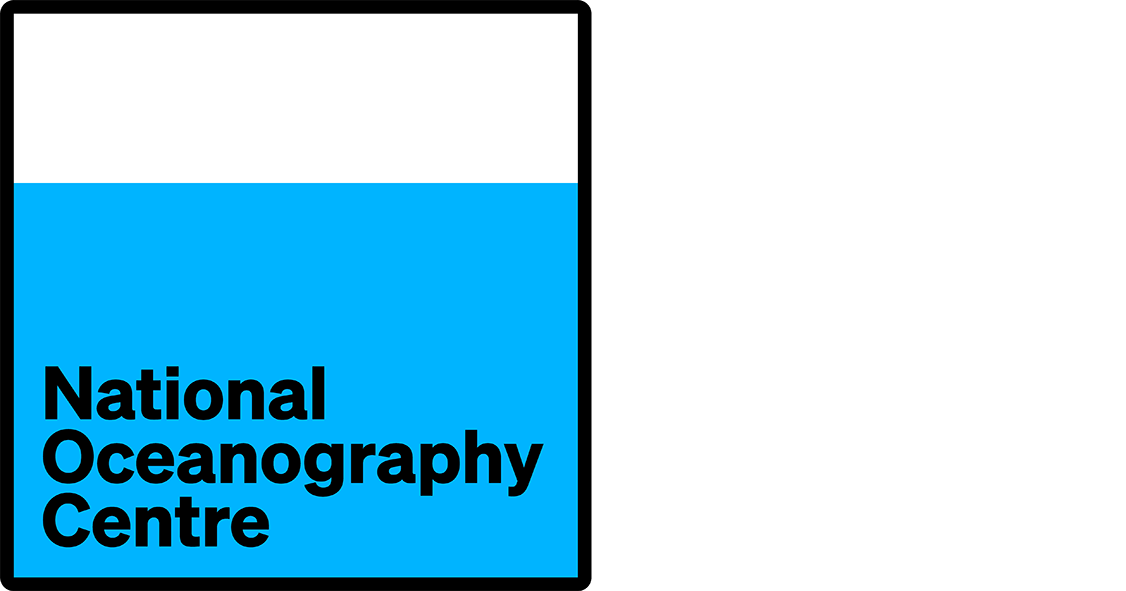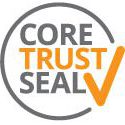Metadata Report for BODC Series Reference Number 923033
Metadata Summary
Problem Reports
Data Access Policy
Narrative Documents
Project Information
Data Activity or Cruise Information
Fixed Station Information
BODC Quality Flags
SeaDataNet Quality Flags
Metadata Summary
Data Description |
|||||||||||||||||||||||||||||||||
|
|||||||||||||||||||||||||||||||||
Data Identifiers |
|||||||||||||||||||||||||||||||||
|
|||||||||||||||||||||||||||||||||
Time Co-ordinates(UT) |
|||||||||||||||||||||||||||||||||
|
|||||||||||||||||||||||||||||||||
Spatial Co-ordinates | |||||||||||||||||||||||||||||||||
|
|||||||||||||||||||||||||||||||||
Parameters |
|||||||||||||||||||||||||||||||||
|
|||||||||||||||||||||||||||||||||
|
|||||||||||||||||||||||||||||||||
Problem Reports
No Problem Report Found in the Database
Data Access Policy
Public domain data
These data have no specific confidentiality restrictions for users. However, users must acknowledge data sources as it is not ethical to publish data without proper attribution. Any publication or other output resulting from usage of the data should include an acknowledgment.
The recommended acknowledgment is
"This study uses data from the data source/organisation/programme, provided by the British Oceanographic Data Centre and funded by the funding body."
Narrative Documents
Instrument Description
CTD Unit and Auxiliary Sensors
A Sea-Bird Electronics SBE 19 plus SEACAT CTD unit was used. Water samples were collected with a 1.5 litre Knudsen reversing water bottle, which was attached to the CTD frame and closed with a messenger. The CTD unit included the following sensors.
| Sensor | Manufacturer | Model | Serial number | Calibration date |
|---|---|---|---|---|
| Pressure | Sea-Bird | 6028 | 2008-02-28 | |
| Temperature | Sea-Bird | 6028 | 2008-02-28 | |
| Conductivity | Sea-Bird | 6028 | 2008-02-28 | |
| Fluorometer and Turbidity Sensor | Wet Labs | ECO FLNTU | 0947 | 2008-03-05 |
Sea-Bird SBE 19 and SBE 19plus SEACAT Profiler CTDs
The SBE 19 SEACAT Profiler is a self-contained, battery powered, pumped CTD system designed to measure conductivity, temperature, and pressure in marine or fresh water environments to depths of 10,500 meters. It was replaced by the SBE 19plus model in 2001. An updated version of this instrument is the SBE 19plus V2, which incorporates an electronics upgrade and additional features, with six differentially amplified A/D input channels, one RS-232 data input channel, and 64 MB FLASH memory.
The standard CTD unit comes with a plastic housing (rated to 600 m), although this can be replaced by titanium housing for depths up to 7000 m. It is typically used for CTD profiling although a conversion kit is available for mooring deployments. The CTD can also be attached to an SBE 36 CTD Deck Unit and Power/Data Interface Module (PDIM) for real-time operation on single-core armored cable up to 10,000 m.
Specifications
| Parameter | SBE 19 | SBE 19plus |
|---|---|---|
| Temperature | Range: -5 to +35 °C Accuracy: 0.01 °C Resolution: 0.001 °C Calibration: +1 to +32 °C* | Range: -5 to +35 °C Accuracy: 0.005 °C Resolution: 0.0001 °C Calibration: +1 to +32 °C* |
| Conductivity | Range: 0 to 7 S m-1 (0 to 70 mmho cm-1) Accuracy: 0.001 S m-1 Resolution: 0.0001 S m-1 Calibration: 0 to 7 S m-1. Physical calibration over the range 1.4 - 6 S m-1* | Range: 0 to 9 Sm-1 Accuracy: 0.0005 Resolution: 0.00005 (most oceanic waters, resolves 0.4 ppm in salinity); 0.00007 (high salinity waters, resolves 0.4 ppm in salinity); 0.00001 (fresh waters, resolves 0.1 ppm in salinity) Calibration: 0 to 9 S m-1. Physical calibration over the range 1.4 - 6 S m-1* |
| Strain gauge pressure sensor | Range: 0 to100, 150, 300, 500, 1000, 1500, 3000, 5000, 10000 or 15000 psia Accuracy: 0.25% of full scale range (100 - 1500 psia); 0.15% of full scale range (3000 - 15000 psia) Resolution: 0.015% of full scale Calibration: 0 to full scale in 20% steps | Range: 0 to 20, 100, 350, 1000, 2000, 3500 or 7000 m Accuracy: 0.1% of full scale range Resolution: 0.002% of full scale range Calibration: ambient pressure to full scale range in 5 steps |
*Measurements outside this range may be at slightly reduced accuracy due to extrapolation errors.
Options and accessories
Additional sensors can be attached to the CTD, including:
- high accuracy Paroscientific Digiquartz pressure sensor (depth range 0 to 20, 60, 130, 200, 270, 680, 1400, 2000, 4200, 7000 or 10500 m; accuracy 0.02% of full scale; resolution 0.0025% of full scale)
- Dissolved Oxygen (SBE 43 DO Sensor)
- pH* (SBE 18 pH Sensor or SBE 27 pH/ORP Sensor)
- fluorescence
- radiance (PAR)
- light transmission
- optical backscatter (turbidity)
The standard SBE 5M pump may be replaced by an SBE 5P (plastic housing) or 5T (titanium housing) pump for use with dissolved oxygen and/or other pumped sensors. Further details can be found in the manufacturer's SBE 19plus V2 instrument specification or theSBE 19 andSBE 19 plus user guides.
WETLabs ECO FLNTU fluorescence and turbidity sensor
The Environmental Characterization Optics (ECO) Fluorometer and Turbidity (FLNTU) sensor is a dual wavelength, single-angle instrument that simultaneously determines chlorophyll fluorescence and turbidity. It is easily integrated in CTD packages and provides a reliable turbidity measurement that is not affected by Colored Dissolved Organic Matter (CDOM) concentration.
The FLNTU can operate continuously or periodically and has two different types of connectors to output the data. There are 5 other models that operate the same way as this instrument but have slight differences, as stated below:
- FLNTU(RT) - has an analog an RS-232 serial output and operates continuously, when power is supplied
- FLNTU(RT)D - similar to the FLNTU(RT) but has a depth rating of 6000 m
- FLNTUB - has internal batteries for autonomous operation
- FLNTUS - has an integrated anti-fouling bio-wiper
- FLNTUSB - has the same characteristics as the FLNTUS but with internal batteries for autonomous operation
Specifications
| Temperature range | 0 to 30°C |
| Depth rating | 600 m (standard) 6000 m (deep) |
| Turbidity | |
| Wavelength | 700 nm |
| Sensitivity | 0.01 NTU |
| Typical range | 0.01 to 25 NTU |
| Fluorescence | |
| Wavelength | 470 nm (excitation), 695 nm (emission) |
| Sensitivity | 0.01 µg L-1 |
| Typical range | 0.01 to 50 µg L-1 |
| Linearity | 99% R2 |
Further details can be found in the manufacturer's specification sheet.
BODC Processing
Data were received by BODC in one ASCII format file that was subsequently split into 71 separate files, one for each CTD profile. The series were reformatted to the internal QXF format using BODC transfer function 340. Sample calibrations were applied to the conductivity data. The following table details mapping of variables to BODC parameter codes.
| Original parameter name | Original Units | Description | BODC Parameter Code | BODC Units | Comments |
|---|---|---|---|---|---|
| Pressure | Decibars | Pressure exerted by the water column | PRESPR01 | Decibars | |
| Temperature | °C | Temperature of the water column | TEMPST01 | °C | |
| Conductivity | mS cm-1 | Electrical conductivity of the water column calibrated against independent measurements | CNCLCCI1 | S m-1 | Conversion by transfer (mS cm-1 x 0.1). Sample calibrations applied by transfer. |
| Salinity | Salinity of the water column | PSALST01 | Dimensionless | Derived by transfer using UNESCO 1983 algorithm | |
| Fluorescence | µg l-1 | In-situ fluorescence | CPHLPM01 | mg m-3 | |
| Turbidity | Nephelometric Turbidity Unit | Turbidity of the water column | TURBXXXX | Nephelometric Turbidity Unit |
Following transfer to QXF, the data were screened using BODC's in-house visualisation software, EDSERPLO. Any data considered as suspect were flagged 'M'. Flags from the originator marking suspect data were retained during transfer and flagged 'L'.
Originator's Data Processing
Sampling Strategy
A total of 71 CTD casts were performed on FRV Scotia cruise 1408S (07 November 2008 - 28 November 2008) around the west coast of Scotland and the north coast of Ireland. The data were collected between 06:00 hours on 08 November 2008 and 09:00 hours on 27 November 2008.
Water samples were collected in order to obtain independent salinity measurements. The sample data were used to derive calibrations for the conductivity profiles collected by the CTD.
Data Processing
The raw CTD data files were processed through the SeaBird Electronics SeaSoft data processing software following standard procedures. The originators used in-house interactive visual display editing software to edit out individual spikes in the primary temperature and conductivity channels. In addition, a low-pass filter (Sy 1985) was applied to particularly noisy data. An ASCII file was generated for each CTD cast and all files from a cruise were concatenated into one ASCII file which was submitted to BODC.
Sy A., 1985. An alternative editing technique for oceanographic data. Deep Sea Research Part A: Oceanographic Research Papers, 32 (12), 1591-1599.
Field Calibrations
Independent salinity samples, obtained from the sample bottle and spread throughout the cruise, were used to calibrate the CTD conductivity data. Outlying points were discarded, and between 48 and 72 data points were used to derive the calibrations. The sample analyses yielded a straight line conductivity calibration of the form y = mx + c, where m=0.998528 and c = 0.073427.
The uncalibrated data and calibrations were submitted to BODC, who applied the appropriate corrections.
Project Information
No Project Information held for the Series
Data Activity or Cruise Information
Cruise
| Cruise Name | 1408S |
| Departure Date | 2008-11-07 |
| Arrival Date | 2008-11-28 |
| Principal Scientist(s) | Craig G Davis (Fisheries Research Services Aberdeen Marine Laboratory) |
| Ship | FRV Scotia |
Complete Cruise Metadata Report is available here
Fixed Station Information
No Fixed Station Information held for the Series
BODC Quality Control Flags
The following single character qualifying flags may be associated with one or more individual parameters with a data cycle:
| Flag | Description |
|---|---|
| Blank | Unqualified |
| < | Below detection limit |
| > | In excess of quoted value |
| A | Taxonomic flag for affinis (aff.) |
| B | Beginning of CTD Down/Up Cast |
| C | Taxonomic flag for confer (cf.) |
| D | Thermometric depth |
| E | End of CTD Down/Up Cast |
| G | Non-taxonomic biological characteristic uncertainty |
| H | Extrapolated value |
| I | Taxonomic flag for single species (sp.) |
| K | Improbable value - unknown quality control source |
| L | Improbable value - originator's quality control |
| M | Improbable value - BODC quality control |
| N | Null value |
| O | Improbable value - user quality control |
| P | Trace/calm |
| Q | Indeterminate |
| R | Replacement value |
| S | Estimated value |
| T | Interpolated value |
| U | Uncalibrated |
| W | Control value |
| X | Excessive difference |
SeaDataNet Quality Control Flags
The following single character qualifying flags may be associated with one or more individual parameters with a data cycle:
| Flag | Description |
|---|---|
| 0 | no quality control |
| 1 | good value |
| 2 | probably good value |
| 3 | probably bad value |
| 4 | bad value |
| 5 | changed value |
| 6 | value below detection |
| 7 | value in excess |
| 8 | interpolated value |
| 9 | missing value |
| A | value phenomenon uncertain |
| B | nominal value |
| Q | value below limit of quantification |


